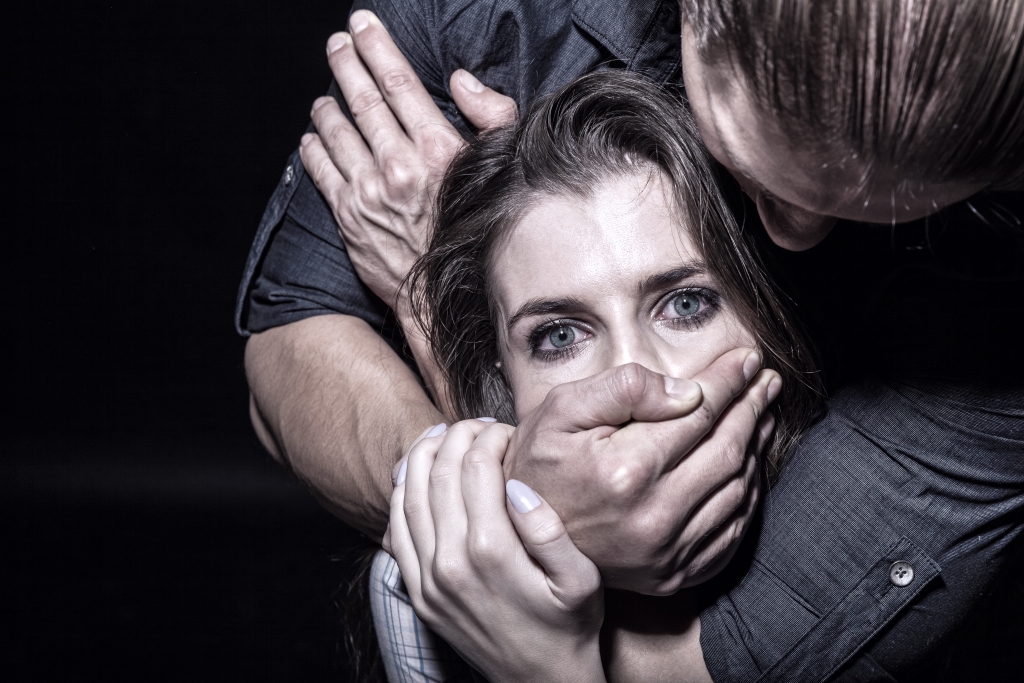Can I Apply For VAWA With A Pending U Visa?
The Violence Against Women Act (VAWA) and the U Visa intends to safeguard and assist people who are victims of domestic abuse, sexual assault, and other crimes. This article discusses the U Visa components and VAWA’s eligibility standards. It also touches on the specific requirements for each. As you read on, you will learn about your rights and other ways to achieve residency in the United States, despite hardships and abuse.

What Is A VAWA Petition?
Also known as a VAWA self-petition, this procedure is where qualified individuals can apply for immigration benefits. It is a clause in U.S. immigration law enabling victims of sexual assault, domestic abuse, and other qualifying offenses to apply for relief. It allows them to file without the help of their abusive partner, parent, or child to sponsor their application.
The self-petition enables qualified persons to demonstrate their merits-based eligibility for immigration benefits. Here are the individuals who are eligible to apply:
- A spouse or an ex-spouse who endured serious cruelty or assault at the hands of a U.S. citizen or spouse with LPR status.
- A child who experienced severe cruelty or assault at the hands of a parent who is a citizen of the United States or an LPR.
- Mother or father who are victims of violence or severe cruelty from a son or daughter who is a U.S. citizen and who is at least 21 years old.
Applicants must offer sufficient proof of the qualifying relationship and the abuse or excessive cruelty they have experienced to submit a self-petition. It includes police reports, medical records, witness testimonies, pictures, and pertinent paperwork corroborating the abuse.
Victims can individually exercise their rights, request protection, and obtain immigration benefits by filing a self-petition under the VAWA. They may obtain legal status, work permission, access to public services, and Green Card if the petition is successful. Approval of their application can give them stability and the chance to reconstruct their lives free from abuse and violence.
Understanding the advantages and components of a VAWA petition lays the basis for considering whether to petition for extra relief. But what if you have a pending U Visa application?
What Is A U Visa?
It is a non-immigrant Visa offered to victims of specific crimes in the United States. It aims to help individuals subjected to severe physical or mental abuse. Additionally, it supports those who cooperate with law enforcement in their investigation or prosecution of a crime.
A U nonimmigrant status provides a way to move people to report crimes without worrying about being deported. For qualified candidates, this type of Visa grants legal status, work permission, and access to public services. It also allows them to become a lawful permanent resident (LPR) or a Green Card holder.
Qualifications For A U Visa
To qualify for this, applicants must meet specific requirements, which include:
- Victim of a qualifying criminal activity. The petitioner must be a victim of a qualifying crime, including kidnapping, human trafficking, sexual assault, and domestic abuse.
- Significant bodily or mental abuse. As a result of the qualifying offense, the petitioner must have experienced physical or mental abuse. It may involve physical injury, psychological distress, or trauma.
- Collaboration with law enforcement. The applicant must have worked with law enforcement and become part of a criminal investigation or prosecution. Typically, this kind of cooperation includes giving details about the crime or testimonies.
- Eligibility Requirements. The U Visa petitioner must meet several criteria for admission. It includes checking the criminal record, prior immigration infractions, and potential national security risks of the applicant. However, waivers may apply to some grounds for inadmissibility, giving them a chance to become LPRs.
Benefits Of A U Nonimmigrant Status
The U Visa intends to empower immigrant survivors by giving them access to legal safeguards and stability. Furthermore, it gives them a chance to recover from their terrible experiences. By preventing victims from choosing between their safety and immigration status, these benefits promote a more welcoming and encouraging atmosphere for crime survivors.
- Legal Status. The U.S. government grants U Visas holders a legal status for up to four years. With this, individuals are safe from deportation and can live and work legally in the country.
- Permission to work. Holders of this Visa are qualified to apply for work authorization, enabling them to find legitimate employment in the United States.
- Access to benefits and services. They can access various public benefits and services to enhance their well-being and social acceptance. It includes educational opportunities, healthcare, and welfare programs.
- Benefits dependents. Some relatives of U Visa holders may also qualify for such status, giving them access to legal status and benefits. Spouses, children, siblings, and parents can be petitioned, provided they meet all requirements.
- Obtain Green Card or permanent residency status. They may be able to apply for legal permanent residence or a Green Card. It may be possible after retaining the U Nonimmigrant status for a specific time, usually three years.
- Support services for crime victims. Holders of this type of Visa can access resources to help them heal and rebuild their lives, especially crime victims. It includes psychological counseling, rental assistance, and other support programs.
If you are a victim of violence or abuse, you may also wonder if you can apply for a VAWA petition. Learn what it entails and who is eligible for it.
Can You Apply For VAWA With A Pending U Visa Application?
No provision states that you cannot apply for a VAWA self-petition while a U Visa application is still underway. However, the relationship between the two processes can be complicated, and there are several things you must consider.
Applications for each one have different eligibility requirements. While there may be elements of abuse in both processes, they differ in the qualifying relationship with the abuser and the need for law enforcement participation. You may be qualified for both, but it relies ultimately on specific situations and whether they meet the conditions of each immigration relief.
USCIS and U.S. Immigration and Customs Enforcement (ICE) manage U Visa applications, while VAWA self-petitions are only handled by the USCIS. Their timelines vary as one application may get approved before the other. It may be possible to achieve lawful permanent resident status if approval for the VAWA self-petition comes first. On the other hand, if the U Visa application has earned authorization before VAWA, it gives the petitioner temporary legal status. But such an instance does not always lead to obtaining a Green Card.
USCIS examines the self-petitions separately from U Visa applications. There is no specific clause regarding concurrent petitions, but USCIS can consider the ongoing U Visa application into account when evaluating the VAWA. In a self-petition, you must include all pertinent details about your U Visa application to show your desire to cooperate with law authorities.
Because concurrent self-petitions and U Visa applications can be complicated, it is essential to get help from an immigration lawyer. A legal counsel can evaluate your situation and give individualized recommendations based on recent immigration laws and regulations.
How Can An Immigration Attorney Help You?
 People applying for VAWA while having a pending U Visa application can benefit much from the assistance of an immigration attorney. They can help in the following ways:
People applying for VAWA while having a pending U Visa application can benefit much from the assistance of an immigration attorney. They can help in the following ways:
- Case evaluation. An immigration attorney can thoroughly assess your situation and determine whether you are qualified for both petitions. They can evaluate the pros and cons, spot potential roadblocks, and create a plan to achieve a positive outcome.
- Legal assistance. These legal counsels have a thorough understanding of the intricacies of immigration law. They offer tailored, individualized advice and assist people in making informed judgments. They outline the prerequisites, eligibility criteria, and possible repercussions of filing for VAWA while a U Visa is still pending.
- Preparation of application. Applications need considerable evidence to prove a sufficient connection and the abuse encountered. An attorney can assist applicants in gathering the required paperwork. It includes affidavits, incident reports, medical records, and other supporting data. They can ensure the application is detailed, well-structured, and makes a strong argument.
- Court representation. The procedures can be represented by and advocated for by an immigration lawyer. They can speak with immigration officials, react to demands for documentation, and deal with any problems that may arise. Hiring a legal counsel can give people peace of mind and guarantee the protection of their rights and interests.
- Risk mitigation. Applying for immigration relief involves several hazards, such as disclosing private information about abuse or immigration status. An attorney can provide advice on how to reduce these dangers, preserve confidentiality, and handle potential legal issues that could surface.
Summary
The U Visa and the Violence Against Women Act aim to help and protect immigrants who are victims of abuse or crimes. This article highlights the victims’ rights and paths to becoming permanent residents in the United States. It also outlines the qualifying requirements and advantages of both immigration relief.
For victims of particular crimes helping law enforcement, the U Visa provides legal status, permission to work, and access to public services. According to VAWA, eligible individuals may submit a self-petition for immigration benefits. They should have been victims of abuse by a family member who is a U.S. citizen or permanent resident. Although it is not expressly forbidden, applying simultaneously for VAWA and U Visa can be challenging. To understand the processes, you need an immigration lawyer to help you navigate your options.


